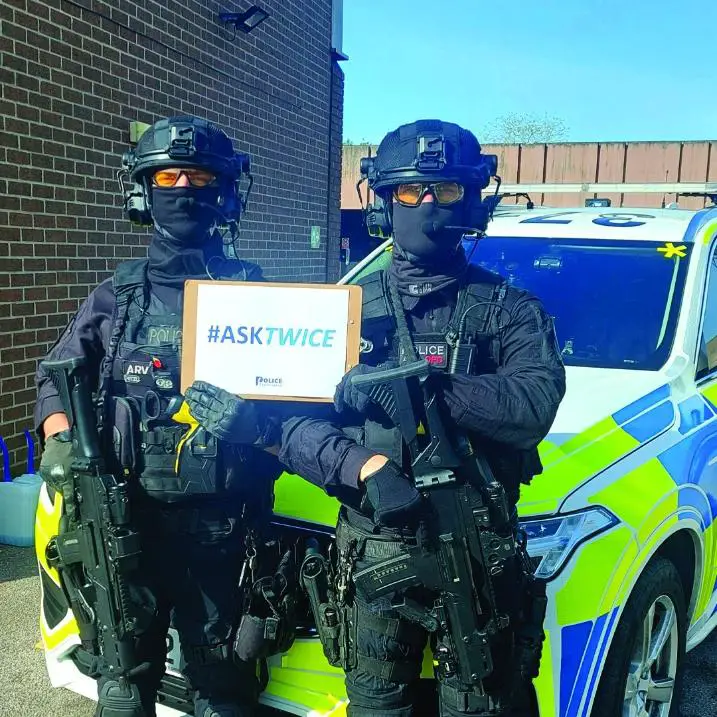From artisanal crepes to rebellious cheesecake waffles, Reading's breakfast rebels are transforming morning meals. These seven spots will revolutionize how you start your day.
Former Police Federation Head Faces Disciplinary Action Over Inappropriate Comment
A disciplinary tribunal has ruled that a former leader of the Police Federation of England and Wales committed gross misconduct by making a sexual comment about the widow of PC Andrew Harper. This shocking development has sent ripples through the law enforcement community and raised questions about professional conduct at the highest levels of police representation.
Controversy Surrounds Respected Police Figure

The incident involves John Apter, who previously held the prestigious position of chairman of the Police Federation. His inappropriate remark, directed at the widow of a fallen officer, has not only tarnished his own reputation but also cast a shadow over the organization he once led. This case highlights the importance of maintaining professional standards and respect, especially when dealing with sensitive matters related to bereaved families of police officers.
Details of the Misconduct Case
John Apter, the former chairman of the Police Federation of England and Wales, has been found guilty of gross misconduct by a disciplinary tribunal. The ruling stems from an incident where Apter made a sexual comment about Lissie Harper, the widow of PC Andrew Harper. This inappropriate remark has not only damaged Apter's reputation but also raised concerns about the conduct of high-ranking officials within police organizations.
The case has drawn significant attention due to the sensitive nature of the comment and its target. PC Andrew Harper, a Thames Valley Police officer, tragically lost his life in the line of duty in 2019. His widow, Lissie Harper, has since become a prominent figure in advocating for tougher sentences for those who kill emergency workers.
Implications for Police Leadership

The ruling against Apter carries substantial weight within the law enforcement community. As the former head of the Police Federation, Apter held a position of considerable influence and responsibility. The Police Federation represents rank-and-file officers across England and Wales, making it a crucial organization in the policing landscape.
This incident has sparked discussions about the standards of behavior expected from those in leadership roles within police organizations. It underscores the importance of maintaining professionalism and respect, particularly when dealing with matters related to fallen officers and their families.
Broader Impact on Police-Community Relations
The case also has potential implications for the relationship between the police and the public. Trust in law enforcement institutions is crucial for effective policing, and incidents involving misconduct at high levels can erode this trust. The handling of this case and the transparency of the disciplinary process may play a role in how the public perceives the accountability of police leadership.
Furthermore, the incident highlights the challenges faced by organizations like the Police Federation in balancing their role as advocates for officers while maintaining ethical standards and public confidence. It raises questions about the culture within such organizations and the mechanisms in place to prevent and address inappropriate behavior.
Looking Ahead
As the news of this ruling spreads, it is likely to prompt further discussions within the policing community about professional conduct and the responsibilities of those in leadership positions. The case may lead to calls for enhanced training or stricter guidelines for those representing police officers at a national level.
The outcome of this disciplinary process and any subsequent actions taken by the Police Federation or other relevant bodies will be closely watched. It remains to be seen how this incident will impact the organization's leadership and its ability to effectively represent and advocate for police officers in the future.
Former Police Federation Head Faces Disciplinary Action Over Inappropriate Comment
Aftermath and Organizational Response
The ruling against John Apter has prompted the Police Federation to reassess its internal policies and procedures. The organization is now faced with the challenge of rebuilding trust and credibility in the wake of this scandal. Senior officials within the Federation have announced plans to conduct a comprehensive review of their code of conduct and ethical guidelines for leadership positions.
This incident has also sparked a broader conversation about the culture within police representative bodies. Many are calling for increased transparency and accountability measures to be implemented across all levels of these organizations.
Support for Lissie Harper

In the aftermath of this controversy, there has been an outpouring of support for Lissie Harper. Fellow officers, police organizations, and members of the public have rallied around her, condemning the inappropriate comment and reaffirming their respect for her advocacy work.
This show of solidarity highlights the strong bonds within the policing community and the public's appreciation for those who have made sacrifices in the line of duty. It also underscores the importance of treating bereaved families with the utmost respect and sensitivity.
Potential Legislative Impact
The incident has reignited discussions about the need for stronger safeguards against misconduct within police organizations. Some lawmakers have suggested that this case could serve as a catalyst for new legislation aimed at enhancing accountability and ethical standards in police leadership roles.
Proposals being considered include mandatory ethics training for high-ranking officials and the establishment of an independent oversight committee to handle complaints against senior police representatives.
Reflections on Police Culture

This case has prompted introspection within the policing community about the values and behaviors that are cultivated in their ranks. Many officers and police leaders are using this moment as an opportunity to reflect on their own conduct and the example they set for others.
There is a growing recognition that fostering a culture of respect, empathy, and professionalism is crucial not only for maintaining public trust but also for supporting the wellbeing of officers and their families.
As the police force navigates these challenging times, the lessons learned from this incident may well shape the future of police leadership and representation in England and Wales.
